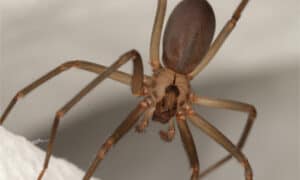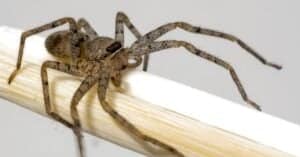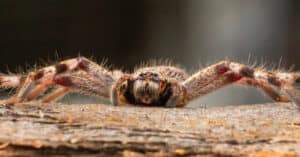Wolf spiders are just one type of spider that you can find in Georgia. They are among the largest spiders in the state and also one of the most common. Lycosidae is the name of the wolf spider family and contains around 2,500 different species. While there is an abundance of wolf spiders in the world, this article will cover the wolf spiders in Georgia and give you everything you need to know about them.
About Wolf Spiders
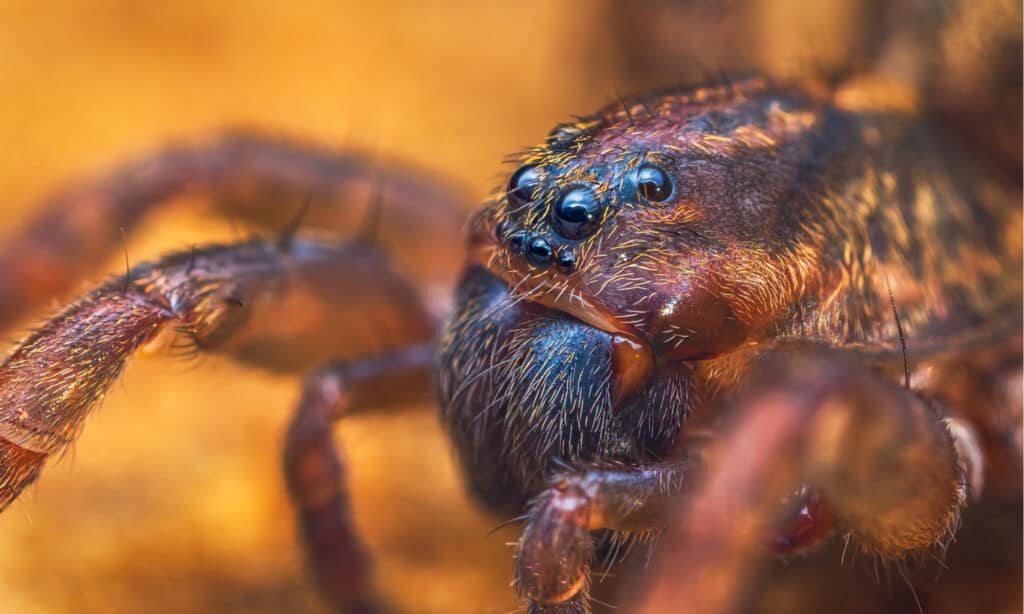
Wolf spiders are nocturnal.
©Lukas Jonaitis/Shutterstock.com
Wolf spiders are a common spider in Georgia and are a widespread species throughout the US. Various habitats like grasslands, agricultural fields, urban areas, forests, and beaches are just a few of the places they are found. Active at night, most of their time is spent hunting. While this spider is hairy, its wolf name comes from its deadly hunting ability, which resembles the ferocity of a wolf.
In Georgia, wolf spiders are one of the largest species in the state, which also include Joro spiders, crevice spiders, and garden spiders. They have a tan, dark brown, gray, or black coloring. They are very hairy spiders and usually have a mottled pattern to help them blend into their environment. Wolf spiders range between 6 to 35 mm (0.24 to 1.2 inches) in size when fully grown. Females are slightly larger than males, which helps in laying more eggs.
Where To Find Wolf Spiders In Georgia
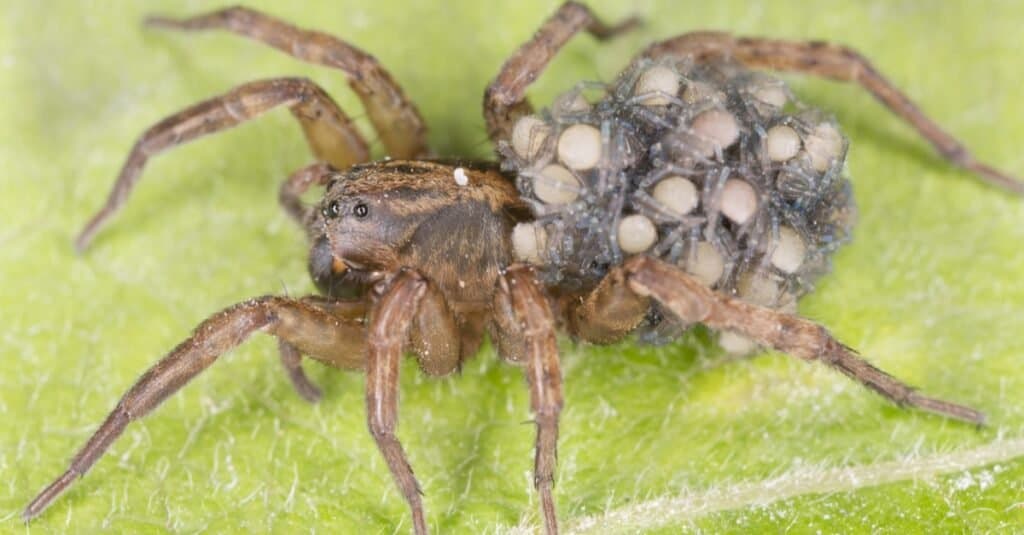
Wolf spiders do not make webs.
©Henrik Larsson/Shutterstock.com
As a spider that spends time wandering and does not live in a web, wolf spiders can be found in various places. A few common places wolf spiders are found include:
- Under debris like rocks or wood piles.
- Living in burrows.
- In shrubs and bushes.
- Hiding in lawns and yards.
- In other dark and secluded areas.
The night is when most wolf spiders are active, and during the day, they rest in a dark and hidden area. Some of the larger species of wolf spiders like the Carolina wolf spider, live in burrows. On some occasions, wolf spiders make their way into homes and are most of the time looking for food or shelter. Spring to fall is when wolf spiders are active. Most wolf spiders have a lifespan of around 1 to 2 years. Females live longer, and some wolf spider species live for several years.
In Georgia, wolf spiders mate in spring. A female wolf spider carries her egg sac in her mouth, on her back, or guards it in a secluded area. When the spiderlings hatch, they latch onto the mother’s back until they are able to fend for themselves. Wolf spiders lay up to 100 eggs, and when they hatch will stay on their mother’s back for several days.
Are Georgia Wolf Spiders Dangerous?
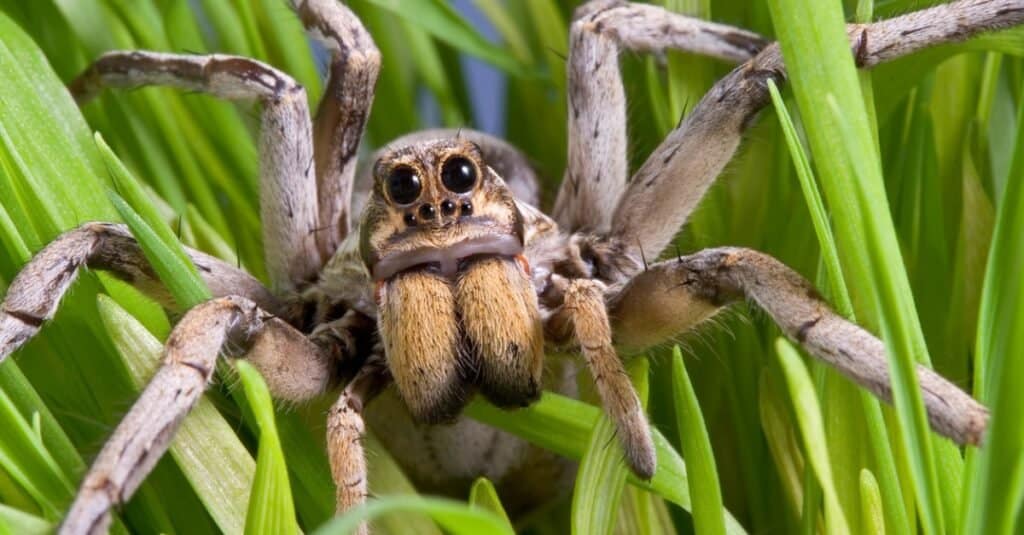
Wolf spiders are not a threat to humans.
©iStock.com/CathyKeifer
Luckily the wolf spiders in Georgia and any other state you come across are not dangerous. Like other species of spiders with venom, it is harmless to humans unless you are allergic. Wolf spiders are not a threat to humans; bites only result in mild symptoms like redness and a small bump. Though wolf spiders are larger than many spiders in Georiga, this species is harmless, unlike the dangerous spiders that can be found in the state like the brown recluse. Children and the elderly are also more susceptible to this spider’s venom and should seek medical attention. Most of the time, this spider will avoid humans and flee if spotted.
Why Wolf Spiders Are Beneficial In Georgia
Spiders like the wolf spider and other species are extremely beneficial to their environments. Wolf spiders help control pest and insect species in their habitats. Spiders are one of the best natural forms of pest control and help keep certain pest populations from growing out of control.
Active at night, wolf spiders use their quick movements, and keen vision to take down their prey. These spiders are able to move up to 2 feet per second, letting them cover short distances very quickly.
Common prey wolf spiders eat include:
Not only are wolf spiders great at pest control, but they also are eaten by some animals that live alongside them. Birds, other spiders, large frogs, rodents, and lizards are a few of the predators that feed on wolf spiders. The wolf spiders in Georgia help keep balance in the ecosystems they live in and are just one of the interesting spiders you can find in the state.
The photo featured at the top of this post is © Katarina Christenson/Shutterstock.com
Thank you for reading! Have some feedback for us? Contact the AZ Animals editorial team.



